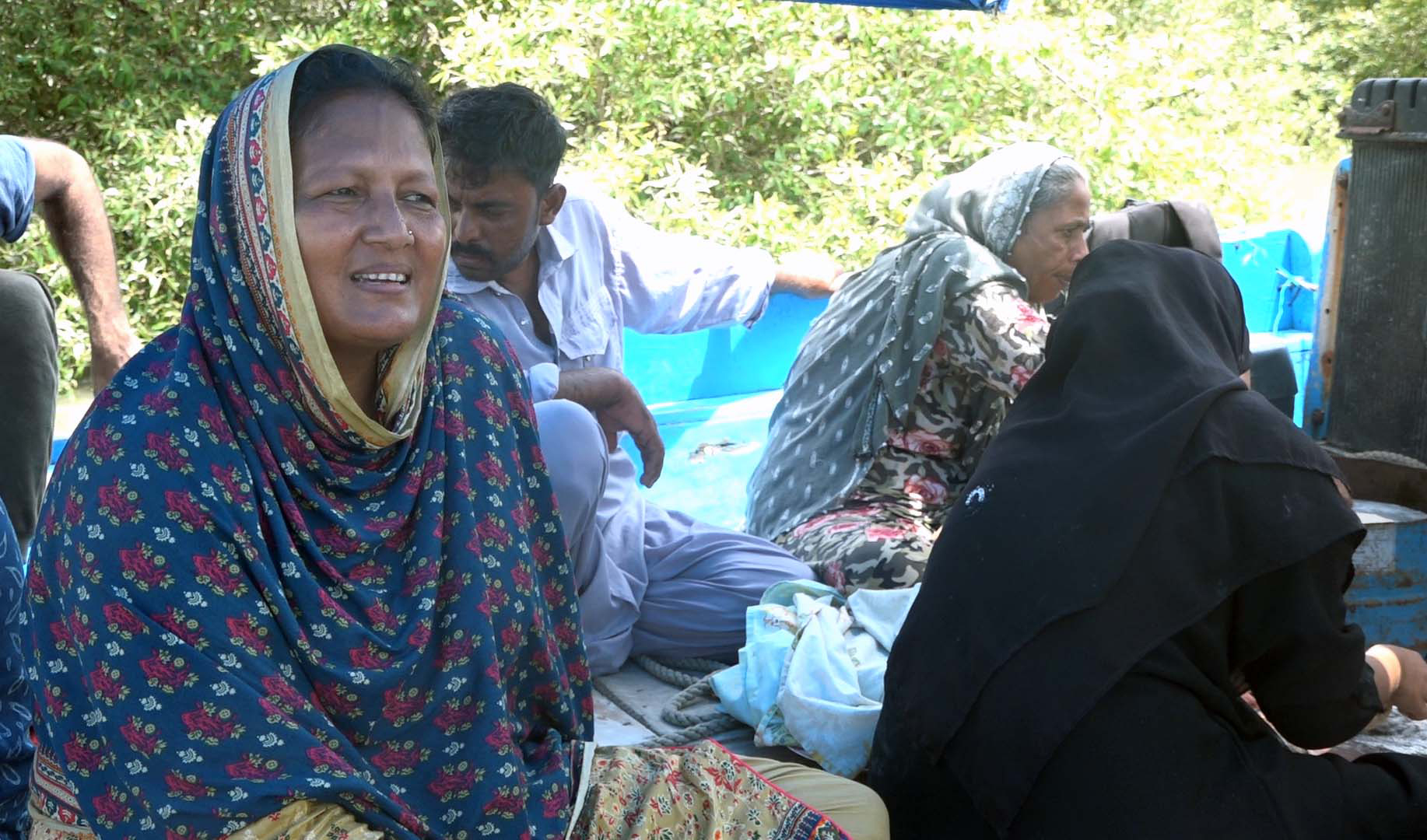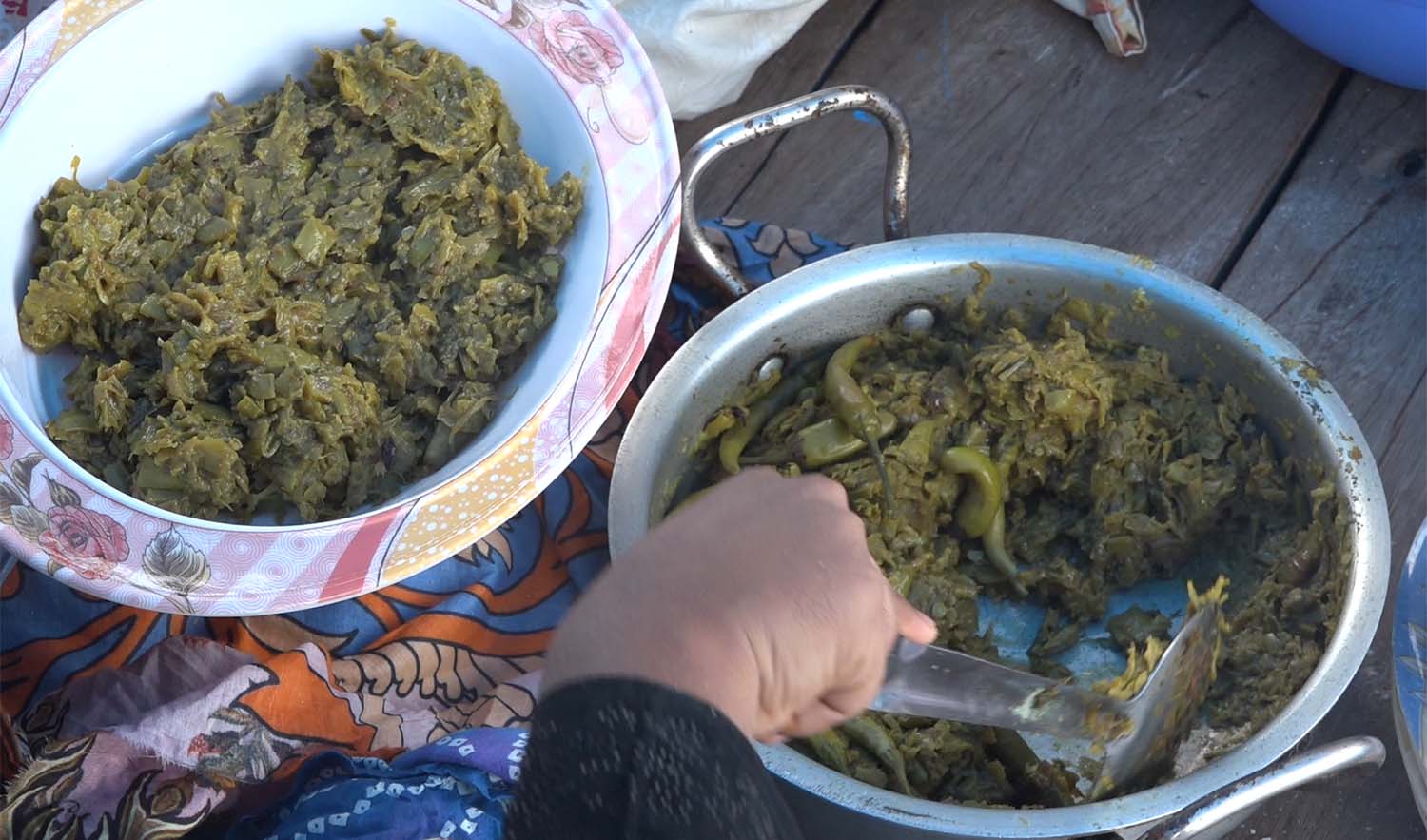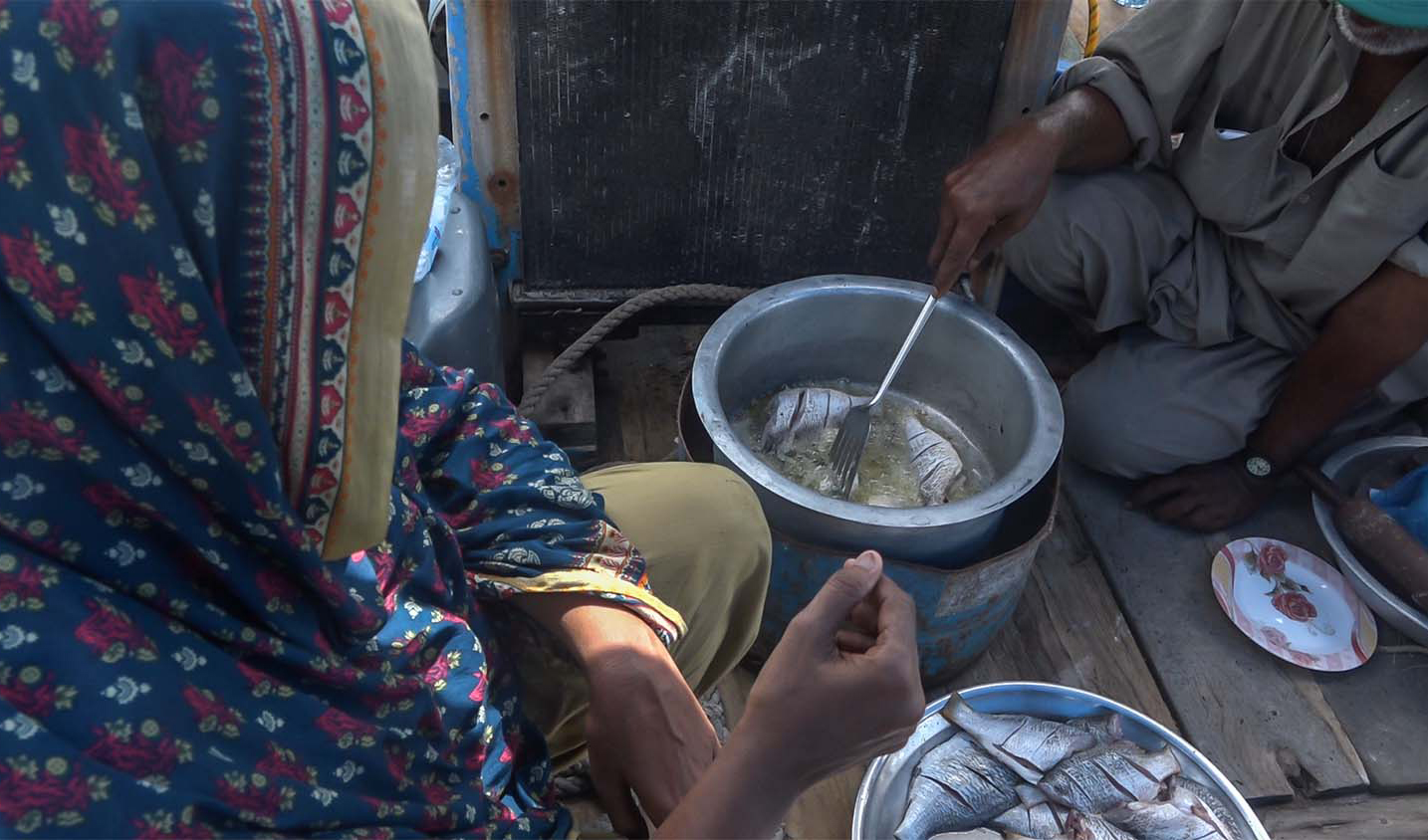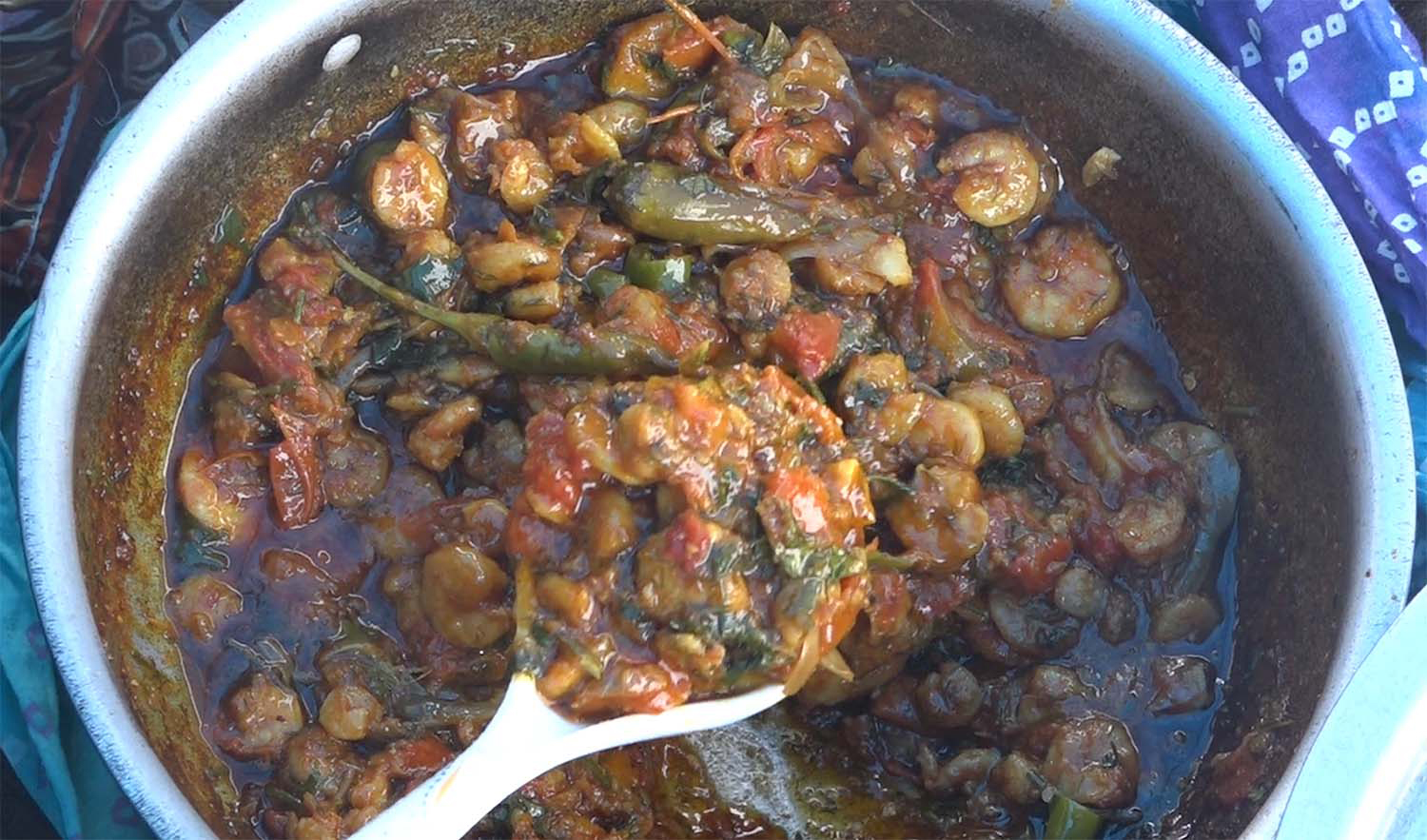KARACHI: Aboard a fishing boat among the mangroves in Khuddi Creek some 21 kilometers off the coast of Karachi, an intimate group of guests watched as Fatima Majeed and two other women last week prepared bread, prawn curry, shrimp biryani and other mouthwatering dishes indigenous to their community of Sindhi-speaking fisherfolk.

Fisherwoman Fatima Majeed speaks to Arab News on Kuddi Island in the Arabian Sea off Karachi, Pakistan, on June 18, 2022. (AN photo)
As Majeed heaped dollops of curried prawns onto plastic plates, her 70-year-old father, Abdul Majeed Motani, educated the guests about the history of his fishing community and the cultural aspects of its gastronomy, which date back to when present day Karachi, a city of 15 million, was just a tiny fishing town known as Kolachi, founded by Baloch tribes from Makran in southwestern Balochistan in the mid 1700s, long before the Karachi port began operations during the British Raj.

Guar or cluster beans are prepared by first mashing them, followed by boiling and then adding spices. Photo taken in Karachi, Pakistan, on June 18, 2022. (AN photo)
The experience is part of ‘Khanay Mei Kya Hai,’ a series of journeys led by culture writer Ahmer Naqvi in which food lovers can, for as little as $15, go on deep dive tours that explore the rich history, diversity and tastes of Karachi's cuisine.
A previous tour, which began from the 19th century British colonial-era Frere Hall building earlier this month, was about a biryani outlet owned by a Punjabi immigrant.
"Everything we eat, it has a story and especially food ... it will be associated with that community, with that community’s festivals or important occasions," 39-year-old Naqvi told Arab News. "There is a story of how a recipe was passed on from generation to generation."
For example the biryani cooked by Majeed's community, he explained, was different from the variety prepared by Urdu-speaking dwellers, called 'Mohajirs,' of the city.

Fisherwoman Fatima Majeed prepares fish aboard a fishing boat on Kuddi Island in the Arabian Sea off Karachi, Pakistan, on June 18, 2022. (AN photo)
Instead of multiple layers of meat and par-cooked rice, Majeed had put marinated meat and curry over a large pot of boiled rice, and finished off the dish by adding herbs and a blob of ghee on top.
“When you go out there [among the communities], you discover not only different types of food, but also different types of people with different styles,” Naqvi said. "When you actually get a chance to learn about the story of that food, where it came from, how it evolved, how it emerged, why is it here, I think that's very interesting.”
“Karachi has a very diverse [food] scene,” he added. "But even in that, we really are not exploring how deep it goes."

Prawn curry is a favorite dish among fisherfolk in the Pakistani seaside metropolis of Karachi. Photo taken in Karachi, Pakistan, on June 18, 2022. (AN photo)
Bilal Asad, a young doctor who was part of last week's tour, said he was there for the food but also to learn about Karachi’s history.
“It [prawn] is one of my favorite types of biryanis and it's very hard to get in Karachi because it's either beef or chicken,” he told Arab News. "But this, for me, was special, having it on a boat surrounded by mangroves."
Zahra Zaidi, a tourist from Lahore, called the tour a "very unique experience."
"What I really enjoyed was and what I really benefited from and learnt from was hearing the mahigeer (fisherfolk) talk about their history, their culture, their ecology, and just learning about the effects of climate change on their livelihood, on their way of life and how so much has changed," she said.
Naqvi, who next wants to take groups to taste the cuisines and culture of the Bohri, Kathiawari and Goan communities, said he hoped the tours would help people connect with forgotten, marginalized groups in the city.
"If you've eaten with them, if you've broken bread with them, if you have shared their food," he said as he bit into a piece of fried fish, "then you care in a more significant way.”















